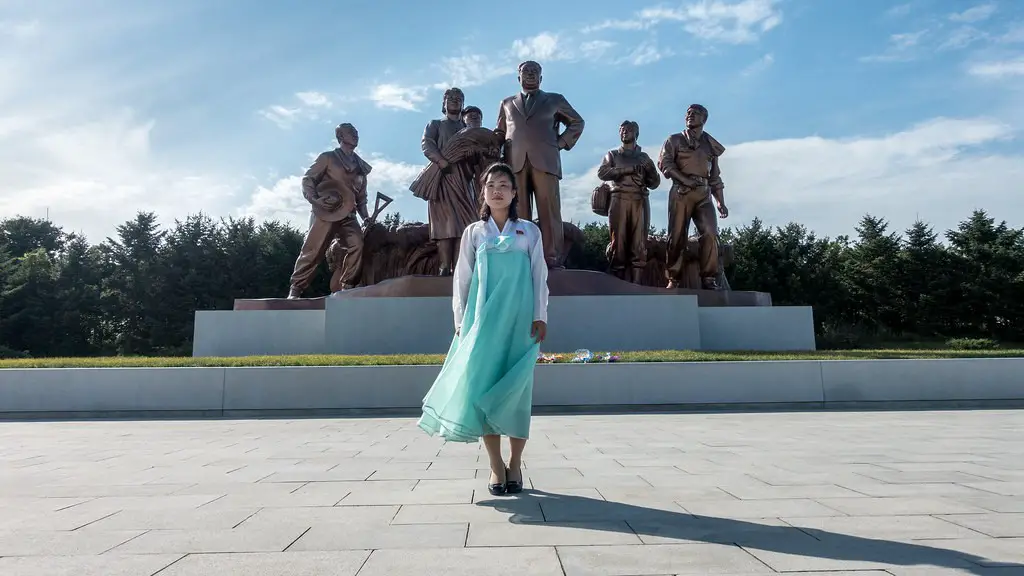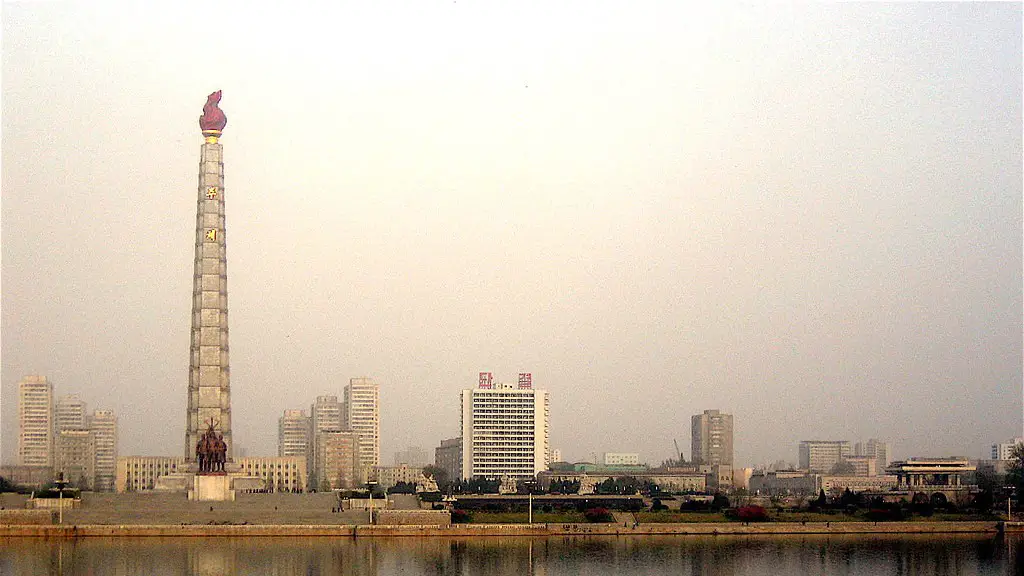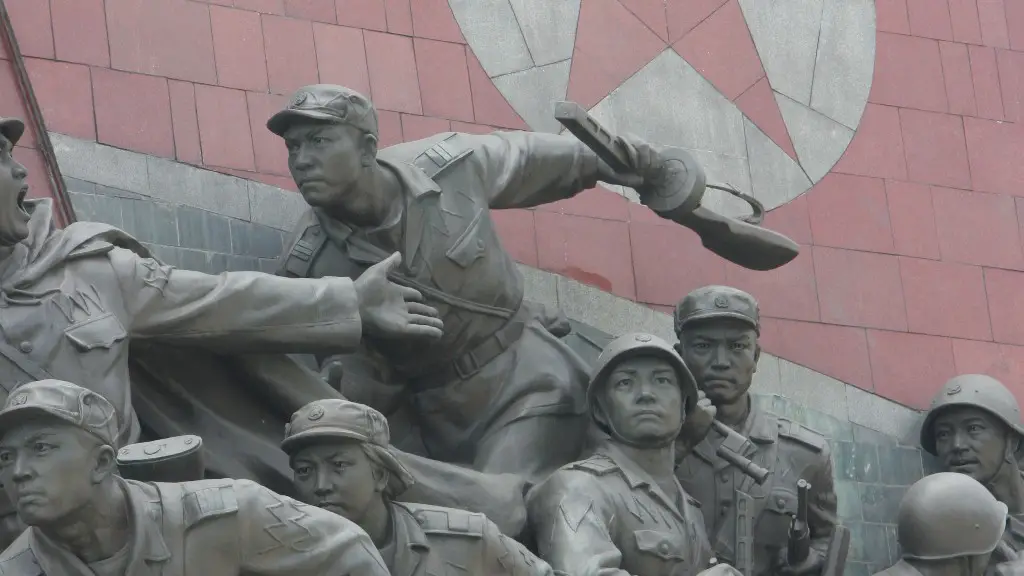Political Reasons That Prevent Interference of North Korea Issues
North Korea has been a country of interest for many years as its isolation from the world has made it impossible to verify the accuracy of information coming from the hermit nation. The country remains a controversial issue when considering international affairs and it is often seen as an entity that does not adhere to the standards of other countries. For example, the North Korean government did not sign the United Nations Human Rights Declaration, unlike all other countries in the world. This has made it difficult for the international community to take any type of intervention when it comes to North Korea.
The country is led by its supreme leader, Kim Jong Un. He and his family have remained in power despite numerous efforts by the international community to remove them. It is not only the human rights violations that are in question, as there has been evidence of development of nuclear weapons as well. It has become increasingly difficult to interject in the North Korean government, due to its high levels of secrecy and absolute control.
Additionally, in the wake of the failed leadership by the United States in Iraq, there has been hesitation to meddle in foreign affairs. First, the United Nations does not have the power to invoke the Authorization for Use of Military Force (AUMF) as the United States still holds that power. The UN has only been able to intervene in non violent cases, such as providing economic aid or diplomatic pressure.
Second, different countries from the Eastern bloc, such as China, are hesitant to impose stringent sanctions on North Korea. This is because doing so would put them in a very vulnerable diplomatic position, and they cannot afford to trust the United States due to their history of military interventions. Despite what appears to be moral issues, North Korea has simply become too familiar and too comfortable with the protection and standing that its neighbors have provided.
Furthermore, North Korea has been able to receive economic assistance from other countries, such as China. This has enabled them to continue to function economically, despite sanctions from the United Nations. China and Russia have been known to help North Korea in various ways, such as providing political support, oil and gas and food aid. This prevents the United States and other countries from having any sort of leverage in forcing North Korea to comply with the international norms.
Economic Factors That Stop Intervention in North Korea
Due to North Korea’s isolationist policies, there has been an immense reluctance to intervene in the country, owing to the potential effects of sanctions and other repellent methods on the economy of the country. It is often assumed that if North Korea is to become a part of the international community, it must first open up its economy, which is highly unlikely due to the strong grip kept by the government, as it fears that it would risk becoming even more vulnerable to foreign influence.
Moreover, there is the issue of allies of North Korea. It receives economic assistance in the form of supplies of oil and food from neighbouring countries, such as China and Russia. These countries manage to remain significant trade partners with the North Korean government, as they are keen on maintaining influence in the region and preventing any sort of destabilization in the region. Furthermore, if the countries are to impose sanctions on the North Koreans, there could be a significant loss in the economic relationships shared by them, which could make the situation more volatile.
Another factor to consider is the heavy presence of military personnel in North Korea. The army has been known to take up many jobs in its original purpose, in addition to other roles such as agriculture and construction. There is also the government-run supply and logistics system that keeps the economy functioning in North Korea. If the government interferes aggressively with the North Korean government, they run the risk of heavily damaging the North Korean economy, which could lead to a major crisis in the region.
Lastly, another key factor that prevents intervention in North Korea is its foreign policy. The country has tended to remain resistant to international pressure and does not adhere to international norms as many other countries do. This makes any sort of interference from outside nations difficult, as the government would need to be coerced in order to change its policies. In addition, the North Korean government is widely known for its aggressive approach in international affairs.
Lack Of International Agreement on How To Address North Korea
Further aggravating the difficulties in intervening in North Korea is the lack of consensus on how this should be approached. Even though there have been international meetings and discussions around the matter, no common and unified opinion has been reached among the participating countries. The countries are divided over the ways that should be used to address North Korean issues, with some countries supporting harsh sanctions, while others advocate more cooperative approaches.
Also, the leadership in the United States and other countries has been in their respective countries for a long period of time, and the North Korea situation has not been a priority, relative to other matters. With all these reasons, it makes it extremely difficult to bring the international community together in order to take any sort of formal action. The various grievances and interests of each country makes it almost impossible to unanimously come up with a decision that would be beneficial for all.
Furthermore, there is also the issue of a lack of intelligence on North Korea. Its closed system and poor information technology infrastructure makes it difficult for external countries to access reliable information concerning the inner workings of the country. Thus, no clear picture of the happenings inside the country has been developed, making it extremely difficult to come up with strategies for how to approach the situation. In order to intervene in North Korea in a meaningful way, it is important for external nations to have adequate intelligence on North Korea, which is something that has so far not been obtained.
History of North Korea’s Actions that Preclude Intervention
The North Korean government has taken drastic steps in order to keep its citizens under control, by using methods such as the infamous labor camps, which have been compared to the Nazi concentration camps in Germany. In addition, the government monitors its citizens closely, and anyone who tries to escape is mercilessly punished. Moreover, any attempt by the outside forces to interfere in the internal politics of North Korea is dealt with harshly. North Korea has also repeatedly threatened external nations with nuclear attacks, as a show of deterrence.
All of these factors make it almost impossible for the international community to take firm action in order to interfere in North Korean affairs. The government of the country knows that any action taken will be met with severe repercussions, making it extremely risky to undertake military or diplomatic interventions without the fear of backlash. These threats and warnings also prevent the participating countries from taking any form of decisive action.
Lastly, North Korea has used tactics of deception in order to cover up its human rights violations and nuclear weapon program. In the past few decades, foreign journalists and non-governmental organizations have faced immense trouble in getting in and out of the country. Human rights workers have been arrested and charged with political crimes, due to their attempt in trying to expose the country’s human rights violations. In addition, the government has also established a Media-War mission, in order to deceive the international community with its many false propaganda tactics.
Conclusion of Why North Korea Has Not Been Stopped
Ultimately, it is evident that there are multiple challenges when it comes to interfering in North Korean issues. From political, economic and historical challenges, any attempt of interference has the potential to damage the North Korean economy, which could have dangerous repercussions in the region. In addition, the absence of unified consensus among the international community, and the deceptive tactics of the North Korean government, have also been hindering any form of meaningful interference in the country’s issues.




